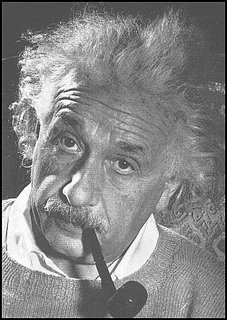World Without End - Ken Folett - my review

The end of my fortieth decade was celebrated by reading this book. I received World Without End as a gift from a friend who gave me the book after I mentioned to him that I had read Ken Folett's, Pillars of the Earth.
World Without End is significant to me because it is the last book I read before turning fifty. As it turns out, Scott and his wife, Toots celebrated their fiftieth wedding anniversary on 5 September of this year. They were married just 11 days before I was born. There's your tidbit if useless information for the day. Haven't had enough yet? Read on. World Without End is Folett's sequel to his epic novel written some 13 years ago. I was not let down because, World Without End picks up some two hundred years after Pillars of the Earth with a smattering of the first book's descendants.
If you are the kind of reader who enjoys getting a little education tossed in as you are reading a good novel, then these two books are for you. If you like powerful characters and strong women then this is definitely a book for you. Like the first book, the story has sex, violence, religion, intrigue, politics, social justice and a little architecture thrown in for good measure. It also is a story rich with historical information about Europe during the time of the Black Death; the Bubonic Plague. It shines a light on the logic of the time and moreover, effectively illustrates how the world view, influenced by the Church and feudal Europe dictated the parameters or rather the constraints people were forced to deal with.
While the story line is not difficult to follow, it is just a little bit over 1,000 pages long. It isn't something I could knock out in a couple of days. It is interesting enough however that you will find yourself thinking about the characters and cannot wait to pick up the book again and get back into the story. There are a few villains in the mix - the kind of people who we all love to hate - most likely because their wickedness of character is timeless. I suppose that is the nature of personality flaws.
The heroes in the story's lives are chronicled over nearly five decades so, as a side note, the book turned out to have a special significance to me considering the time frame I was reading the story and, by the bye, fifty years doesn't seem all that long. That said, it is a fair amount of time for a story to play itself out.
I felt a deep emotional connection with the protagonists, Merthin Bridger - the carpenter and his sweetheart, Caris Wooler - the strong-willed woman whose sheer determination and love of Humanity never allowed her world to hold her back. In short, Caris is a woman that the universe could never put parenthesis around. I will not elaborate much further on the story because I don't want to deny you the pleasure of witnessing their character development. I will say however, I felt a little sad when I finally closed the book for the last time.
Folett's story-telling abilities are second to none and his attention to detail serve the story two-fold; believability with an educational process tossed in along the way.
The book could have not come out at a better time for me. I could relate to Caris and Merthin. Folett's message is that regardless of what one's lot in life may be, Life itself is precious. It is the only life we have so, we must persist regardless. He also illustrates the value of problem-solving, the beauty of life, the attendant nobility of living a life of service to others and, above all, doing the best with you have; despair is part of life but, that is no reason to give up. Sometimes, winners aren't winners after all.
I cannot exactly recall what Daniel Goleman, author of Social Intelligence put it but, I will paraphrase him knowing that it captures the spirit in which it was intended. He said sometimes, the real heroes are not those who do extraordinary things like jumping on a grenade in order to save others. Heroism is a quality of character that is as simple as meeting life on its terms and doing what is expected with no hope for reward other than having the knowledge that what is being done is what needs to be done. It is doing ordinary things - like being a parent who is there for a child, every day. There is also something merited in those who are simply true to themselves (remember Polonius' advice in Hamlet?) It is a quality that seems to be shared by other characters in Follet's novel as well.
This is why I find Follett's writing satisfying on so many different levels. While the story is set in the 1300's, the lessons to be gained are contemporary - not because Folett is a writer looking back but because strife, greed, pride, and persistence are universal characteristics that exist throughout humanity as a whole. I am firmly convinced the reason we read novels and short stories is because, like dreams, they offer us a means of 'gaming-out' conflicts. They provide a safe environment for contemplation at a deeper level. They create a sense of connectedness - like so many oral traditions - where lessons are an integral part of the story-telling process.
Folett's story-telling abilities give his readers an opportunity to understand Human nature and insight as to why some people turn out the way they do. Sometimes evil and good are only relative. In my fifty years, I have come to realize that as well; the world is not simply black and white - it is only shades of gray. Moreover, faced with the circumstances life has to offer us, we have two choices; give up or keep trying. More often than not, the circumstances that are out of our immediate control will always exist. How we choose to deal with such constraints is entirely a matter of personal choice. Bad things are going to happen, how we choose to deal with them is what defines our personal character.
World Without End is a celebration of the Human spirit. What an apropos gift for me as I've rounded out my first half century of life. It is just what the doctor ordered and more importantly, just what I needed.
Thanks Doc
Labels: Architecture, Books, Political History, Women






